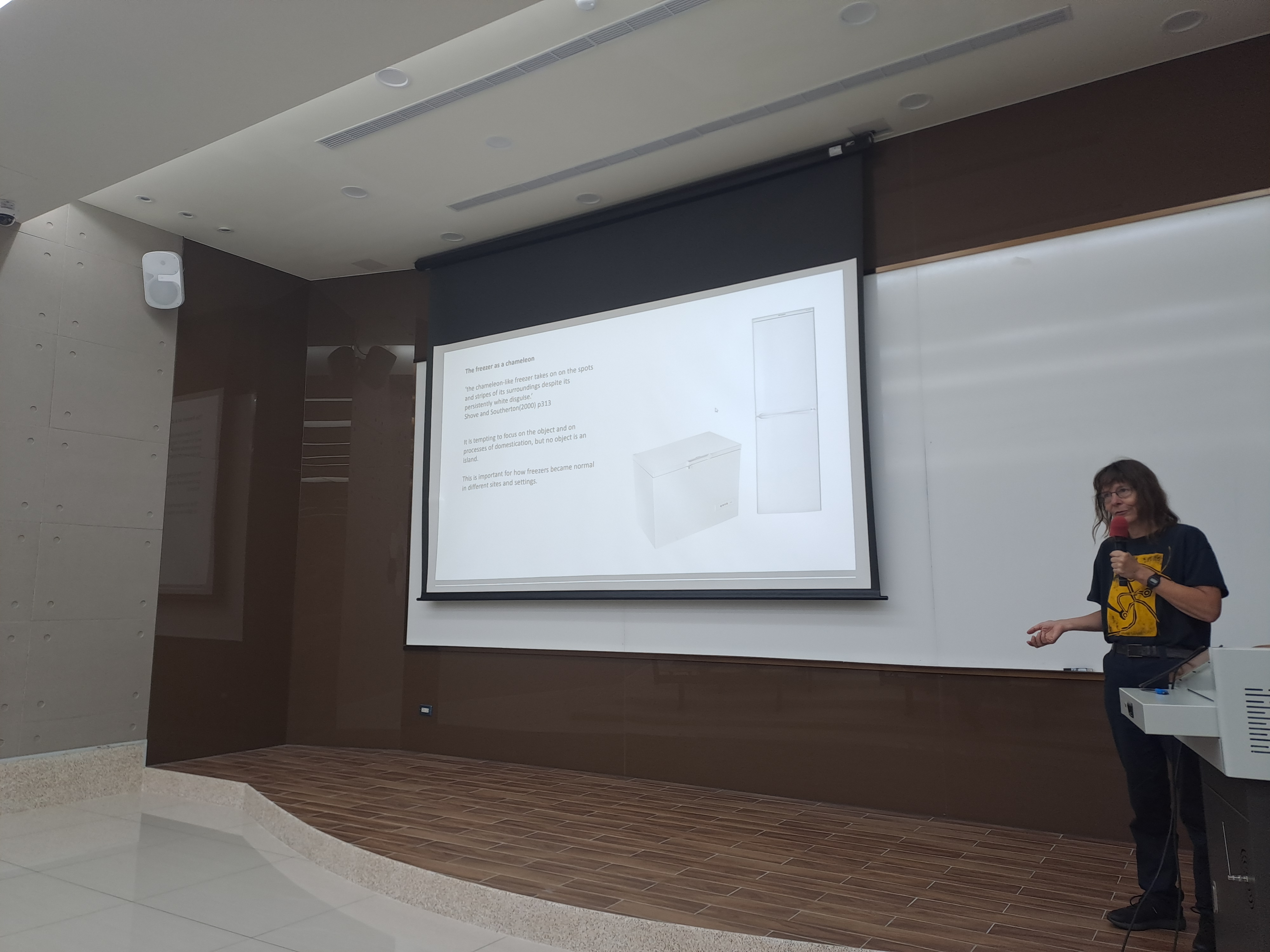2025-10-09
[College of Communication Academic Series #2]British Academy Fellow Professor Elizabeth Shove to Visit NCCU Department of Journalism
Professor Elizabeth Shove, Fellow of the British Academy, will visit the Department of Journalism at National Chengchi University from October 22 to 31 at the invitation of Professor and Chair Shu-Mei Wang. During her stay, Professor Shove will engage in academic exchange with faculty and students from the College of Communication.
Professor Shove has long been a leading scholar in the field of science, technology, and society (STS). She recently retired in August 2025 after 30 years as a Distinguished Professor at Lancaster University, UK. Her research centers on consumption, material culture, and everyday life, and she is recognized as a central figure in practice theory—emphasizing that everyday practices form the foundation of social life and are deeply intertwined with theoretical inquiry and key societal issues.
In recognition of her outstanding scholarly contributions, Professor Shove was elected Fellow of the British Academy in 2019. Her work on energy, mobility, infrastructure, and sustainability has had far-reaching influence, earning her an Honorary Doctorate from Aalborg University in Denmark in 2022, where she was also ranked among the top ten most influential scholars worldwide in her field.
Professor Shove will deliver a public lecture on October 29 (Tue), 12:00–14:00, at the B1 Auditorium, Computer Center.
All are warmly invited to attend.
Condensing practices: material culture, systems of provision and the freezer.
The domestic freezer has become a normal part of domestic life, but this has not always been so. In this talk I describe the normalisation of the freezer and the varied systems of food provisioning associated with it. Analytically, I move between the traditions of material culture studies, the literature on systems of provision, and social theories of practice. As I explain, the freezer stands at the intersection of domestic arrangements (cooking, shopping, eating) and commercial networks of food supply, from supermarkets through to the manufacturing and distribution of frozen goods. What is known as the cold chain is, in turn, responsible for a significant increase in energy consumption, in the home and beyond. As I hope to show, bringing a ‘sociological imagination’ to bear on this domestic appliance raises a host of fundamental questions about everyday consumption, sustainability, and global trends in the production and consumption of food.
References:
Shove, E., & Southerton, D. (2000). Defrosting the Freezer: From Novelty to Convenience: A Narrative of Normalization. Journal of Material Culture, 5(3), 301-319. https://doi.org/10.1177/135918350000500303
Hand, M., & Shove, E. (2007). Condensing Practices: Ways of living with a freezer. Journal of Consumer Culture, 7(1), 79-04. https://doi.org/10.1177/1469540507073509 (Original work published 2007)
Rinkinen, J., Shove, E., & Smits, M. (2017). Cold chains in Hanoi and Bangkok: Changing systems of provision and practice. Journal of Consumer Culture, 19(3), 379-397. https://doi.org/10.1177/1469540517717783 (Original work published 2019)
Registration: https://moltke.nccu.edu.tw/Registration/registration.do?action=conferenceInfo&conferenceID=X25405
Learn more about Professor Shove: https://www.thebritishacademy.ac.uk/fellows/profiles/elizabeth-shove-FBA/

![[College of Communication Academic Series #2]British Academy Fellow Professor Elizabeth Shove to Visit NCCU Department of Journalism](https://jschool.nccu.edu.tw/upload/73/doc/36439/image0.jpeg)
![[College of Communication Academic Series #1]Professor Ai Kuno from the University of Tokyo Visits NCCU Journalism for Research Exchange](https://jschool.nccu.edu.tw/upload/73/doc/36438/001.jpg)
![[College of Communication Academic Series #3]SOPA Week](https://jschool.nccu.edu.tw/upload/73/doc/36435/政大卓越100系列海報SOPA周_修改03s (1).jpg)